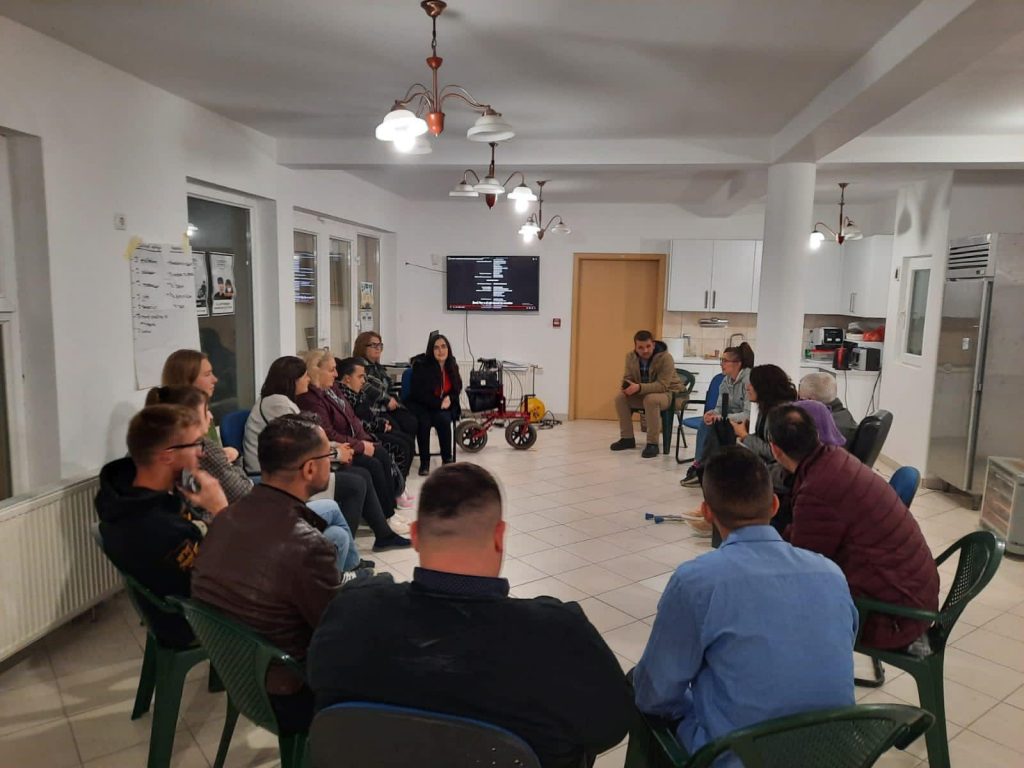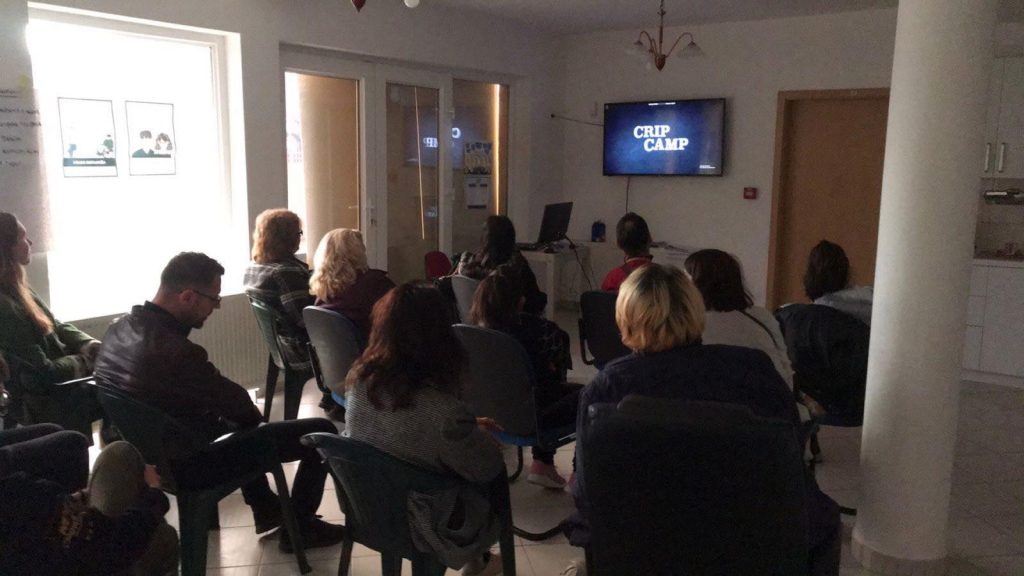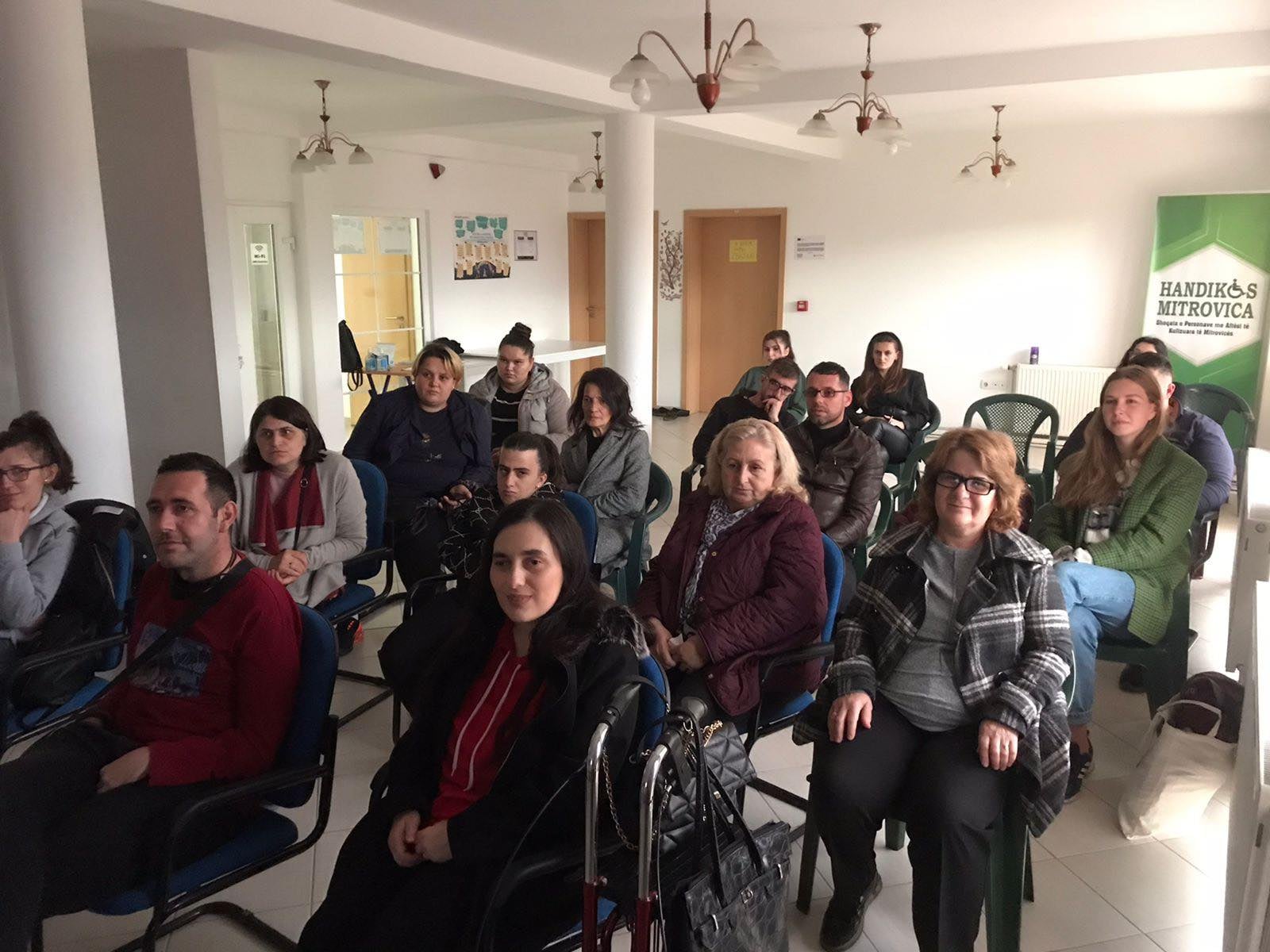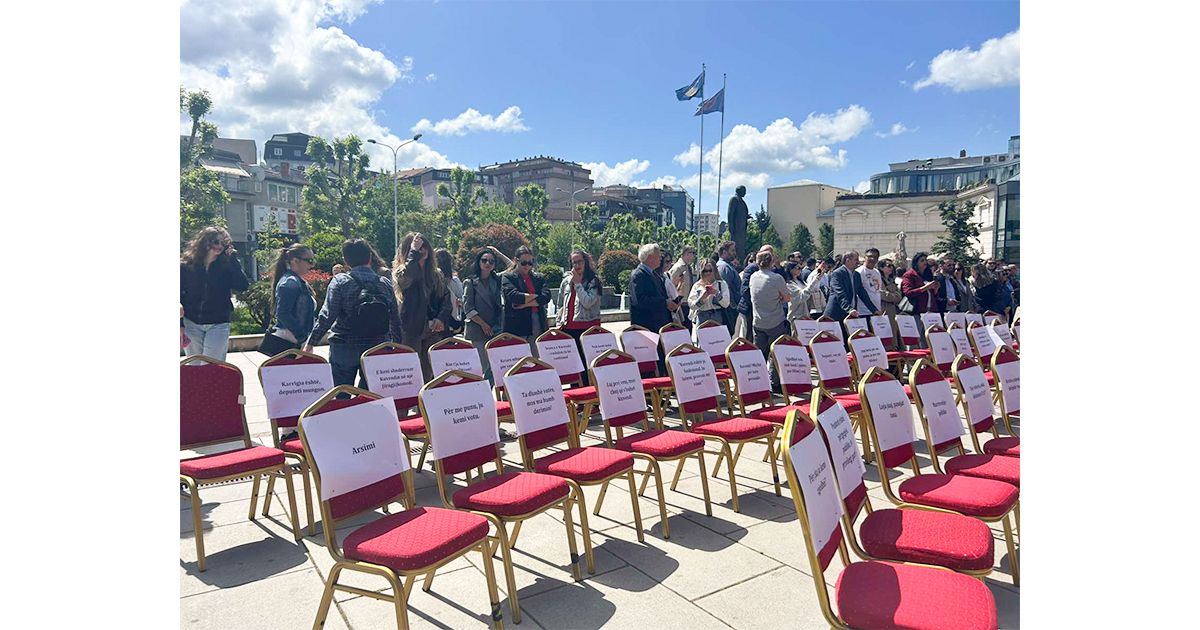During the three months of implementation of the initiative “Reproductive health and sexual education of women and girls with disabilities in the municipality of Mitrovica“, Handikos Mitrovica held trainings, film screenings and various debates in order to improve the knowledge and capacities of girls and women with disabilities over their rights to health care.
From October till December 2021, Handikos Mitrovica held two trainings, two film screenings, an open discussion and an activity in public space, with the members of the organization in order to raise awareness of girls and women with disabilities on reproductive health, sex education and the differences between gender and sex.
“Sexually Transmitted Infections and their Prevention”, “Prevention of Early Pregnancy” and “Access to Health Institutions and Sexual Health Information” were some of the topics covered during the five-day training with young women.
“These trainings are a good opportunity to get a lot of knowledge about our health”, said one of the participants in this training.

In November 2021, as part of this initiative, Handikos Mitrovica held screenings of two films with over 40 participants. After the screening, a debate was held with relevant institutions on access to health services for people with disabilities in this municipality.
Myrvete Hasani, Director of Handikos Mitrovica, Dr. Luljeta Zhubi Director of Mitrovica Hospital and Dr. Sanije Klinaku-Nimoni from the Main Family Medicine Center in Mitrovica were panelists during this debate.
Awareness raising was considered as one of the key pillars for guaranteeing social and institutional support for people with disabilities.
A total of 50 women and girls from the city of Mitrovica and the villages of the city, including Zhabar, Koshtovë, Çabër, Bajr, directly benefited from the organized activities. However, the number of indirect beneficiaries, through film screenings and open discussions, reaches 100.

Klinaku-Nimoni pledged that MFMC will work to improve conditions for people with disabilities.
“The Main Family Medicine Center in Mitrovica has engaged mobile teams for care and health checks for people who do not have the opportunity to go to the relevant institutions to perform them,” she said, among other things.
This initiative is supported by the 15th round of the Kosovo Women’s Fund and funded by the Austrian Development Agency (ADA) with co-financing from the Swedish International Cooperation and Development Agency (Sida), through the Swedish Embassy in Pristina, as part of the KWN’s “Further Advancing Women’s Rights in Kosovo II” initiative.



